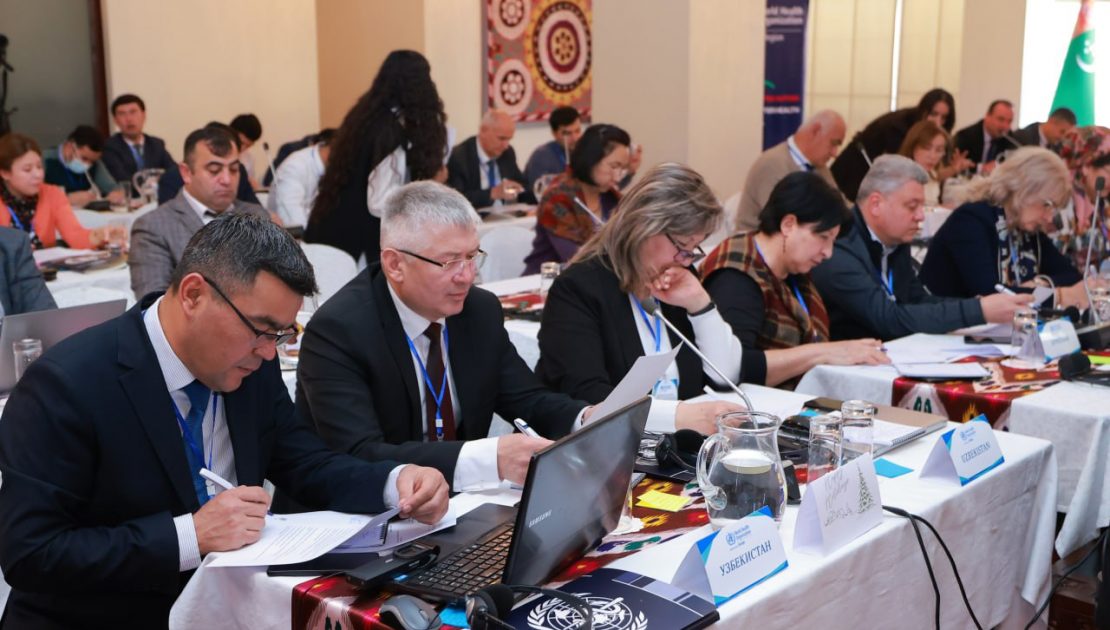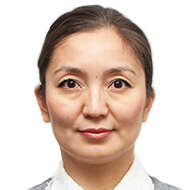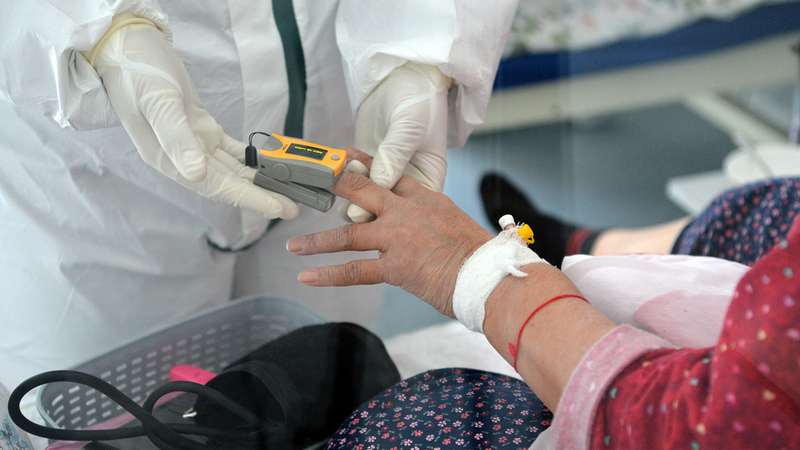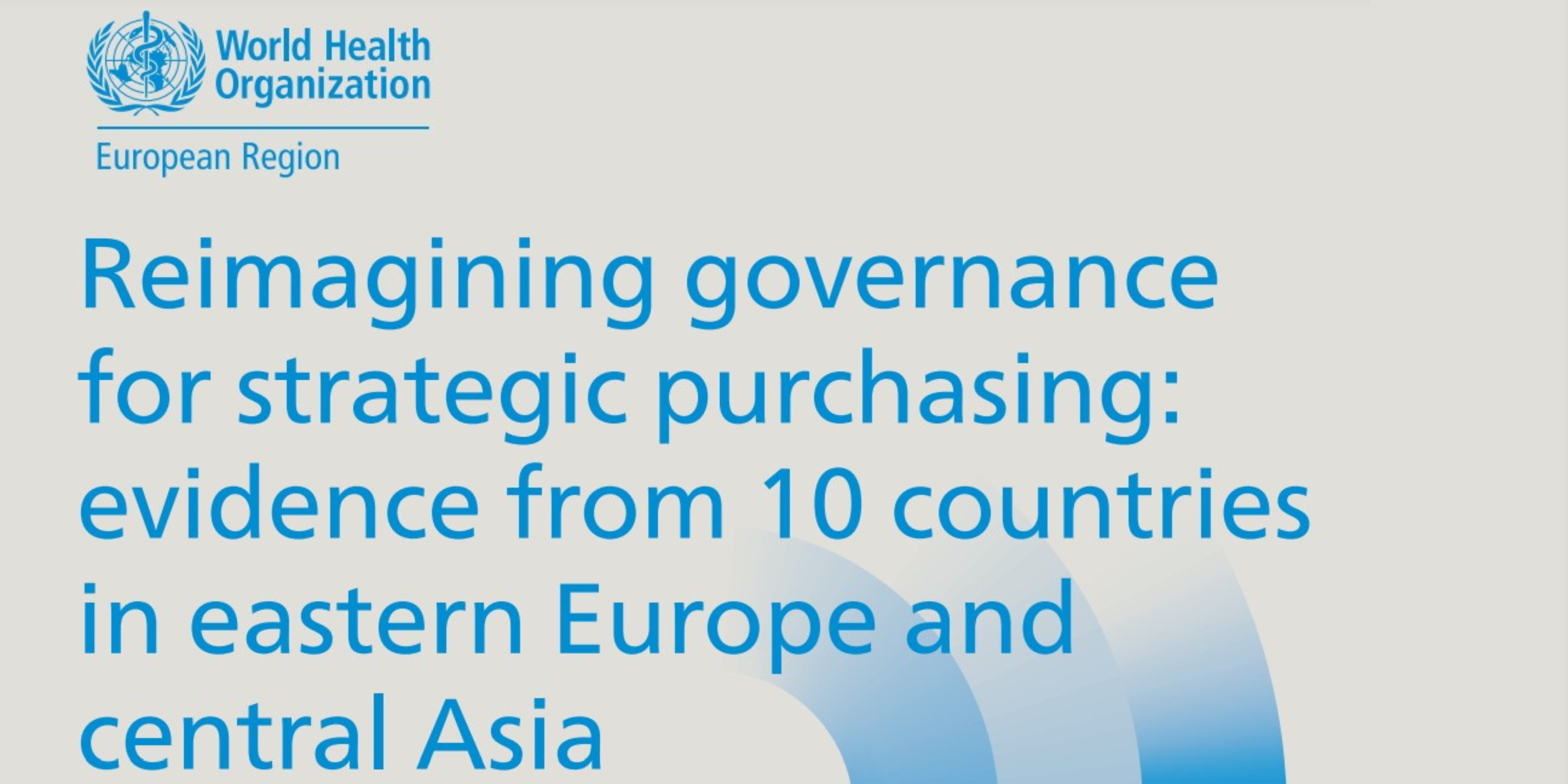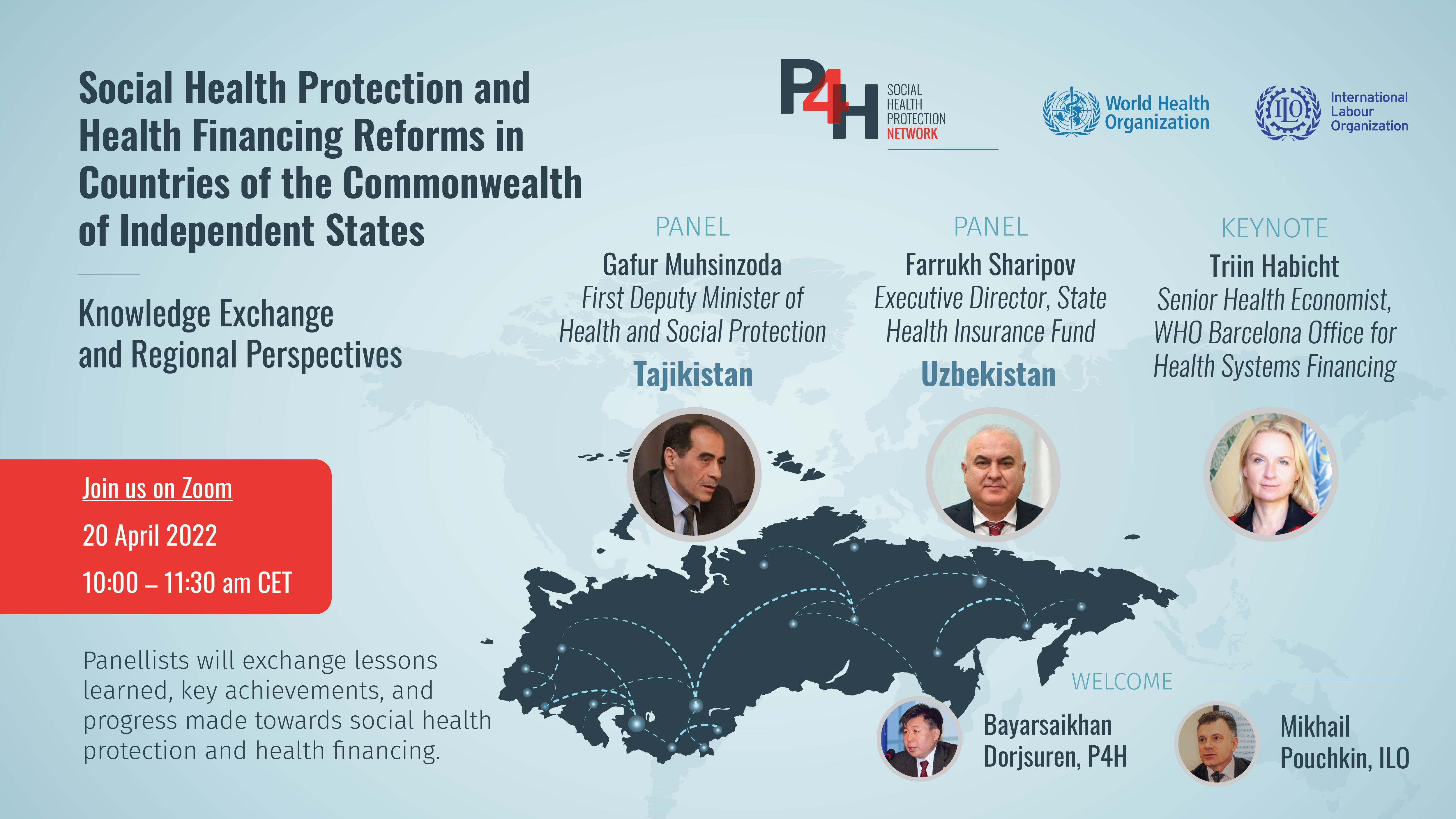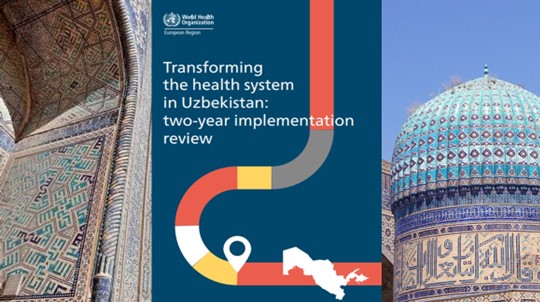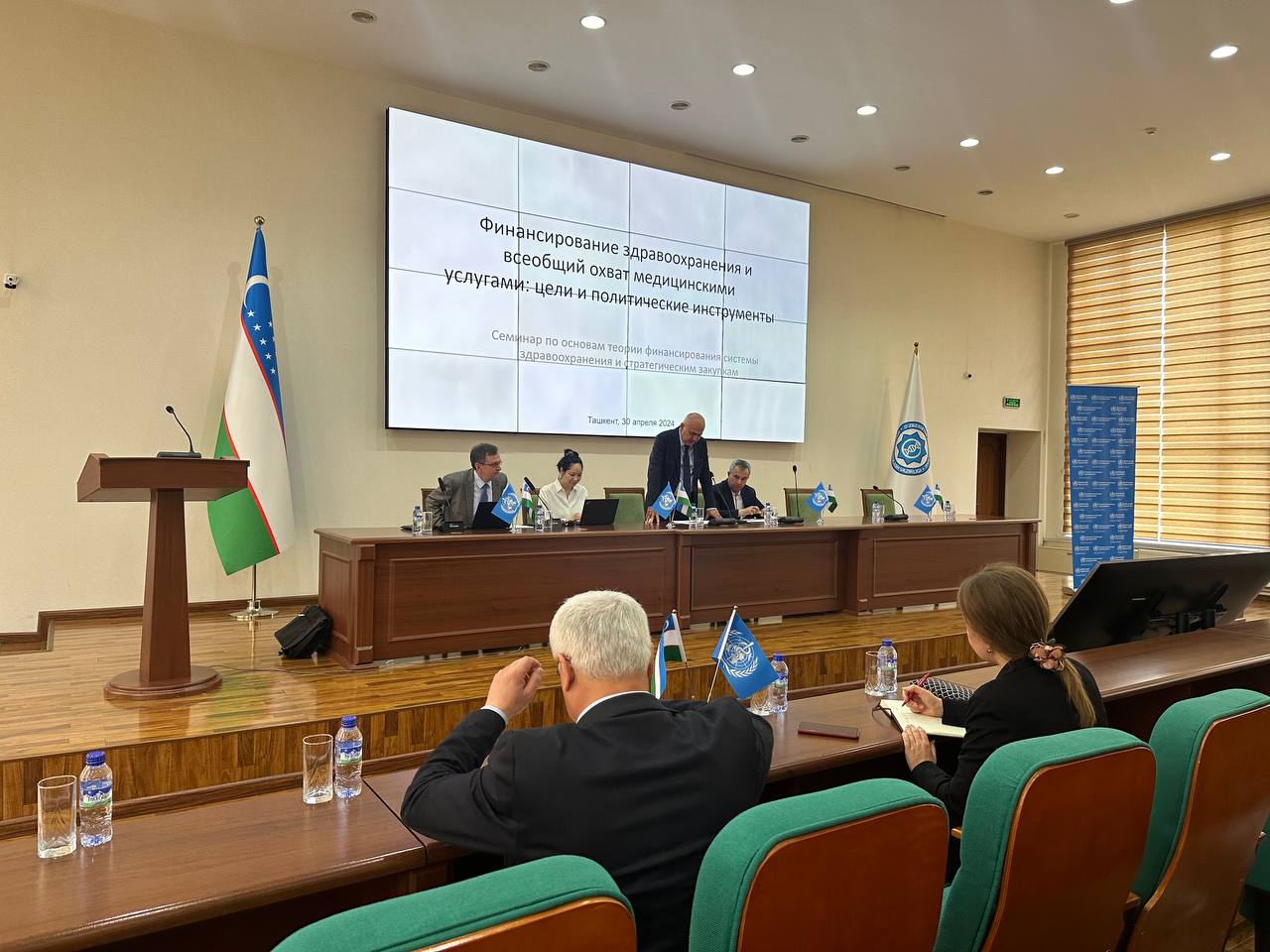As reported by the Ministry of Health and Social Protection of the Population of Tajikistan and by the State Health Insurance Fund of Uzbekistan, WHO-Europe has conducted a training on pricing and reimbursement of medicines and medical supplies for national policymakers from Armenia, Kazakhstan, Kyrgyzstan, Turkmenistan, Uzbekistan and the host country — Tajikistan.
The full name of the training, which took place on December 18-22, 2023, in Dushanbe, Tajikistan, was “Pricing and Reimbursement of Medicines and Medical Supplies to Improve the Clinical Management of Noncommunicable Diseases”. The opening ceremony was attended by Shodikhon Jamshed, the Deputy Minister of Health and Social Protection of the Population of the Republic of Tajikistan, and by the heads of the departments of the ministry, development partners, representatives of the World Health Organization in Tajikistan, Armenia, Kazakhstan, Kyrgyzstan, Turkmenistan, Uzbekistan, and national experts.
Through the Access to Medicines Program and the Noncommunicable Diseases Program of the Regional Office for Europe, the WHO Country Office in Tajikistan plans to provide opportunities to develop technical knowledge and practical skills in the basic concepts of pricing and reimbursement for essential medicines used in the clinical management of non-communicable diseases in the outpatient setting.
This event is held in a form of practical sessions, which include thematic presentations, discussion of the main approaches in drug supply policy, in particular, pricing, selection and reimbursement of medicines used to treat non-communicable diseases, and other forms of training aimed at developing practical skills. The training is conducted by internationally known expert trainers in the field.
Issues discussed were very relevant for participants based on their feedback and were related to reimbursement programs for medicines and medical supplies. The training covered the topic of inclusion of essential medicines and supplies for prevalent chronic diseases in the guaranteed package; the key role of pricing and reimbursement of medicines in ensuring the economic accessibility of medicines to treat common non-communicable diseases; and approaches to monitoring the effectiveness of pricing systems and reimbursement programs.
An example of the benefits of regional knowledge exchange was how the State Health Insurance Fund of Uzbekistan shared its experience in reimbursement programs being implemented in Uzbekistan for targeted compensation of the costs of medicines prescribed by a doctor.

